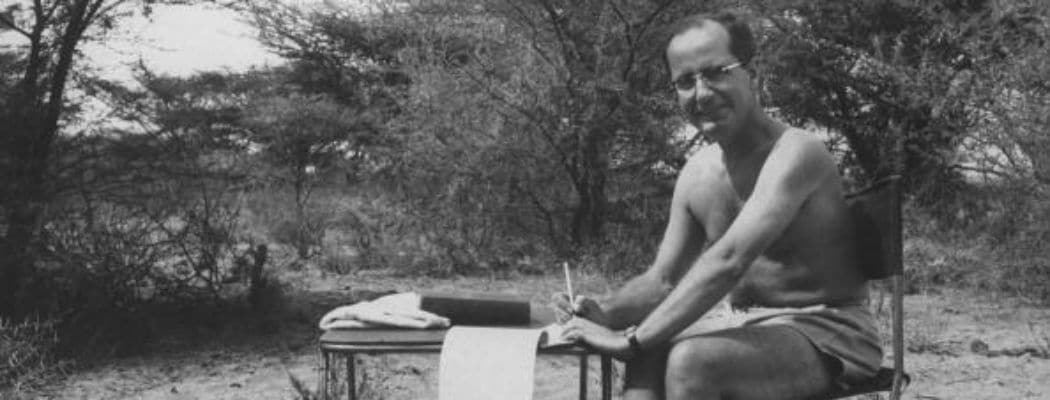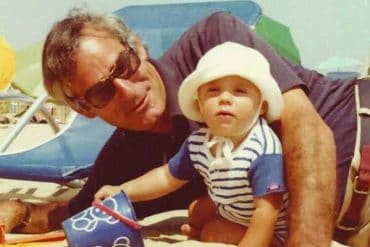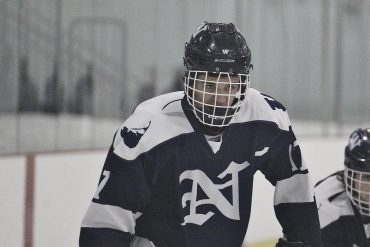Revealing the secret life of late summer resident, Kermit Roosevelt, Jr.
When Kermit “Kim” Roosevelt, Jr. was eulogized at Siasconset Union Chapel sixteen years ago this June, few had any idea of the secrets he was taking to the grave. The grandson of President Theodore Roosevelt, Kim, who would have turned one hundred this winter, had lived the real cloak-and-dagger adventures of a CIA operative. Only after his death in 2000 did the U.S. government reveal the true impact this Nantucket summer resident had on the face of global politics.
 Born in Buenos Aires to Teddy Roosevelt’s second son Kermit, Kim Roosevelt followed the path of many American blue bloods before him, attending Groton School and then Harvard University. He tried his hand at teaching after graduating Harvard, but World War II propelled him into the military where he served in the Office of Strategic Services, an agency that later became the CIA. Less is known of Roosevelt’s role during the Second World War, but reports show that he was involved in the Allied invasion in Italy and spent time in Egypt and Iran. The latter would serve as his entrée into a career as a Middle East expert. “He spoke neither Arabic nor Farsi,” wrote Gwen Kinkead in Harvard Magazine, “but Theodore Roosevelt’s 37-year-old grandson befriended kings, tribal leaders and heads of state as easily as he dined at the White House with cousin Franklin and Winston Churchill.”
Born in Buenos Aires to Teddy Roosevelt’s second son Kermit, Kim Roosevelt followed the path of many American blue bloods before him, attending Groton School and then Harvard University. He tried his hand at teaching after graduating Harvard, but World War II propelled him into the military where he served in the Office of Strategic Services, an agency that later became the CIA. Less is known of Roosevelt’s role during the Second World War, but reports show that he was involved in the Allied invasion in Italy and spent time in Egypt and Iran. The latter would serve as his entrée into a career as a Middle East expert. “He spoke neither Arabic nor Farsi,” wrote Gwen Kinkead in Harvard Magazine, “but Theodore Roosevelt’s 37-year-old grandson befriended kings, tribal leaders and heads of state as easily as he dined at the White House with cousin Franklin and Winston Churchill.”
As chief of the CIA’s Near East and Africa Division, Roosevelt became versed in black propaganda, bribery, and misinformation, all the while “crisscrossing the Middle East… plotting coups over lime rickeys and tennis,” as Kinkead wrote. Roosevelt’s effectiveness was enhanced by how completely unassuming he was as a CIA agent. He was quiet, unremarkable in appearance, and, as a British double agent once noted, “the last person you’d expect to be up to his neck in dirty tricks.” What’s more, he was armed with the Roosevelt family name and that alone could carry as much clout as being the president himself.
Communism was the enemy during Roosevelt’s reign, and Iran landed squarely in his crosshairs. Although certain intelligence at the time indicated otherwise, Roosevelt and the CIA feared that Iran was going to fall to the Soviets, and with it a billion-dollar trove of oil and Middle East influence. “There was a grave danger that the Iranian prime minister, Dr. Mohammed Mossadegh, would, for lack of other support in his struggle against the shah, rely on — and ultimately surrender power to — the Iranian Tudeh Party and its backer, the Soviet Union,” Roosevelt wrote in his 1979 memoir Counter Coup: The Struggle for the Control of Iran. As a result, President Eisenhower was convinced that Mossadegh needed to be replaced by the shah, Mohammad Reza Pahlavi, who would show favoritism to the United States. The coup would mark the first ever successfully orchestrated by the American government, with Kim Roosevelt as its chief architect.
 After sneaking into Iran in 1953, wearing a disguise and using a fake identity, Roosevelt launched an all out tactical assault to oust Mossadegh. Misinformation was leaked to newspapers, rioters were paid to protest, and the opposition to the prime minister was ratcheted up to pressure-cooker proportions. At secret midnight meetings, Roosevelt personally convinced the shah to call for the removal of Mossadegh. But when word of this got out, the shah spooked and fled the country. Fearing that the life of their own operative was equally in danger, the CIA pleaded that Roosevelt get out of Iran. But he refused to leave, and instead doubled-down on his efforts by paying off Iranian army officers to spread the story that the shah had fled because Mossadegh was threatening his throne. Violence soon ensued, and after hundreds were killed in the streets, Iranian army tanks rolled over Mossadegh’s security forces and ousted the prime minister. In his place came the pro-American shah, and as a result, nearly half of Iran’s oil production came under the control of the United States.
After sneaking into Iran in 1953, wearing a disguise and using a fake identity, Roosevelt launched an all out tactical assault to oust Mossadegh. Misinformation was leaked to newspapers, rioters were paid to protest, and the opposition to the prime minister was ratcheted up to pressure-cooker proportions. At secret midnight meetings, Roosevelt personally convinced the shah to call for the removal of Mossadegh. But when word of this got out, the shah spooked and fled the country. Fearing that the life of their own operative was equally in danger, the CIA pleaded that Roosevelt get out of Iran. But he refused to leave, and instead doubled-down on his efforts by paying off Iranian army officers to spread the story that the shah had fled because Mossadegh was threatening his throne. Violence soon ensued, and after hundreds were killed in the streets, Iranian army tanks rolled over Mossadegh’s security forces and ousted the prime minister. In his place came the pro-American shah, and as a result, nearly half of Iran’s oil production came under the control of the United States.
The coup became the stuff of legend. Even President Eisenhower was astounded by Roosevelt’s efforts. “[O]ur agent there, a member of the CIA, worked intelligently, courageously and tirelessly,” President Eisenhower remarked in his diary in 1953. “I listened to his detailed report, and it seemed more like a dime novel than a historical fact.” A year later, the President quietly bestowed on Roosevelt the National Security Medal. Yet despite this recognition, the U.S. government did not claim responsibility for the coup itself until 2000, the same year Kermit Roosevelt, Jr. was laid to rest here on Nantucket at the age of 84.
“I didn’t know about it,” says Kim Roosevelt’s grandson, Kermit Roosevelt, III, who is an author and law professor at Penn Law. “He didn’t really talk about it.” The Roosevelts began coming to Nantucket seven generations ago, and today the family still owns property in ’Sconset where the late Kermit Roosevelt, Jr. enjoyed playing tennis and fishing for stripers off the beach. Although he spent his latter years penning a memoir of his adventures as a CIA agent, those on Nantucket knew little of his shadowy past — and that’s exactly how he liked it.






